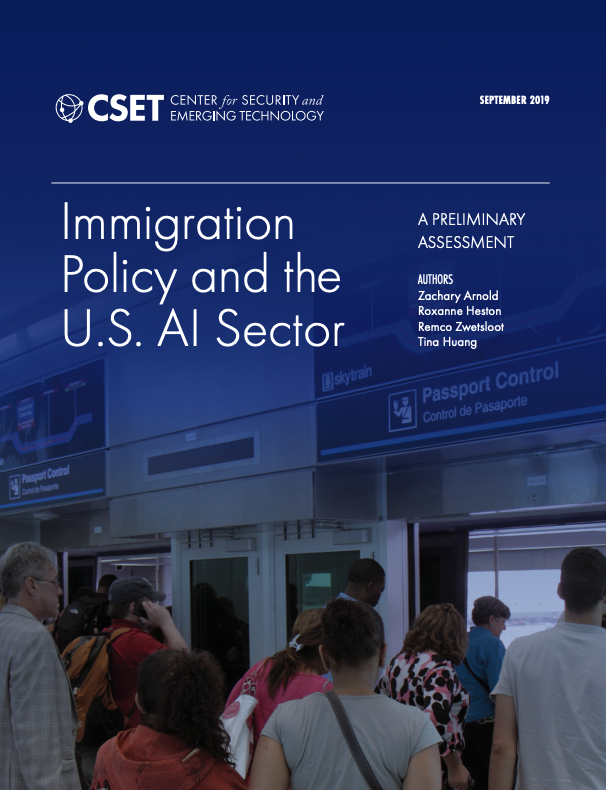The United States’ ability to attract foreign talent is a unique and crucial national security advantage. Historically, immigrants have helped America lead the world in technological innovation.
Artificial intelligence is no exception. Foreign-born talent fuels the U.S. AI sector at every level, from student researchers in academic labs to foreign and naturalized workers in leading companies. Rather than displacing domestic workers, immigrants and visitors fill a critical AI talent gap in the United States – one that is likely to persist and possibly grow over time, even with the most ambitious domestic workforce development efforts. They lead many of America’s top AI companies, contribute groundbreaking original research in AI disciplines, and handle much of the essential, ongoing work to deploy and manage AI throughout the public and private sectors.
To maintain America’s AI advantage in an increasingly competitive global market for talent, U.S. employers need an efficient, accessible immigration system that allows them to recruit and retain the world’s best and brightest. And those best and brightest, the great majority of whom want to come to the United States permanently, need a clear and realistic path toward long-term legal status.
Current immigration law favors large companies and restricts labor mobility, harming AI workers, startups, and entrepreneurs.Zachary Arnold
Unfortunately, the current U.S. immigration system is not up to the challenge. This preliminary paper describes that system as it relates to AI talent, identifies features of the system that are doing the most harm to America’s AI advantage, and proposes reforms. Drawing on agency data and background discussions with AI and immigration stakeholders, the authors find:
- U.S. immigration policy is making the AI sector less competitive for talent.
- Most of the fundamental problems have existed for years or decades, but recent policy changes have made the situation materially worse.
- Beyond any individual law or policy, a general climate of uncertainty, complexity, and restriction is discouraging foreign AI talent from coming to or staying in the United States.
- Immigration-related measures against illicit technology transfer, such as visa restrictions and screening measures, are causing serious harm. Congress and the relevant agencies should thoroughly review these measures.
- Current immigration law favors large companies and restricts labor mobility, harming AI workers, startups, and entrepreneurs.
To address these issues, policymakers should:
- Build new immigration pathways for AI students, workers, and entrepreneurs.
- Fix regulatory and administrative policies that make it harder to recruit and retain AI talent.
- Review and revise existing measures against illicit technology transfer.
This paper has four parts. First, it discusses the central role of foreign talent in the U.S. AI sector. Second, it describes key pathways in current immigration law for noncitizens to come to the United States to study or work in artificial intelligence. Third, it proposes policy actions to address the most significant immigration-related problems facing the U.S. AI sector. Fourth, it briefly discusses CSET’s future research agenda.
